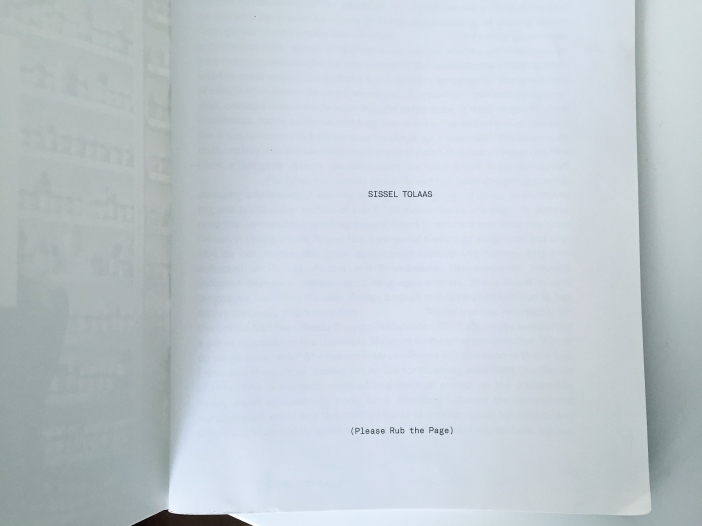131
I rarely wear perfume. My genes allow me to use no deodorant because my body produces little to no odour, though a friend tells me I smell of the oils I blend. Knowing that we live in world that scientist and artist Sissel Tolaas says that has become deodorised, sanitised, and sterilised, I find it more interesting to discover what others are wearing and smell of. Tolaas asks in Mono.Kultur’s #23 issue ‘Sissel Tolaas: Life Is Everywhere’: “what happens when you are stripped bare, devoid of the camouflage that deodorises your system?” (p.9). It demands of us a personal truth, of finding out what we mask and how we desire to be seen or perceived personally, professionally, etc. All by following your nose. In this case, wearing nothing is a reward.
213
In the men’s grooming shop that I work in I am faced with smells coming from the barbers chairs, shelves of creams, oils, perfumes, and people. I am known to open jars and bottles smelling, acquainting myself with ingredients, formulations, instructions. When someone comes in the usual questions are asked about what they like, what they use, and for what occasion. Observation, and a little intuition plays a part in finding out who they are. A gratifying experience is always listening to their stories and interpretations of smells because then the conversation deepens. As individuals we have a fair idea of what we want, but part of that desire is the need to connect to something, even as invisible as perfume, or as tactile as a blade on the skin, because it is going to be, if not already, a part of our lives. Tolaas enquires further, “how can you maximise the process of living by integrating these facts?” She states the facts: smelling is a tool for gathering information to navigate and communicate our way through life (p.6). An approach is to challenge yourself by training your nose to smell in diverse environments, otherwise its function will deteriorate. Tolaas was in Sydney recently, she said that we learned to classify smells in two easy words: good and bad. But the more we challenge and develop our skills in smelling we evolve from black and white judgments to building tolerance in order to attend to different situations in life, when it comes to changing our environment, meeting new people, maintaining relationships, or not. “Smell without prejudices,” she said.

321
Like cattle, my mother and I walk into the ferry. Spending the day together, I smell her Terre d’Hermès Eau Très Fraîche. I smell a man whose personal musk is strong and has won the battle between deodorant and body odour. I am reminded, in an instant, of a lover playfully recoil whenever I placed my hand on his sweaty shorts after gym. It pleased me to push this kind of boundary whilst driving. My mother pulls out her newspaper, and I begin to wonder about the perfumes she used to wear, and loved – Coco, Aromatics Elixir, Youth Dew. I open my book – Belle: The Slave Daughter and the Lord Chief Justice by Paula Byrne – and look around at the other passengers: an elderly man’s smooth hands to the right, a woman on the phone with her hand covering her mouth. I wonder how a young man in his early 20s will grow up to be. Another sleeps on one hand – his face becomes a 21st century Man Ray. A child cries on his mother’s lap. I smile at her. I hear a man bleat as his hands shake against his head. I smell the harbour, its cliffs and eucalypts, the boat, the mix of passengers. I smell a young woman’s perfume sitting behind me. In this panoramic arc I sit in wonder.